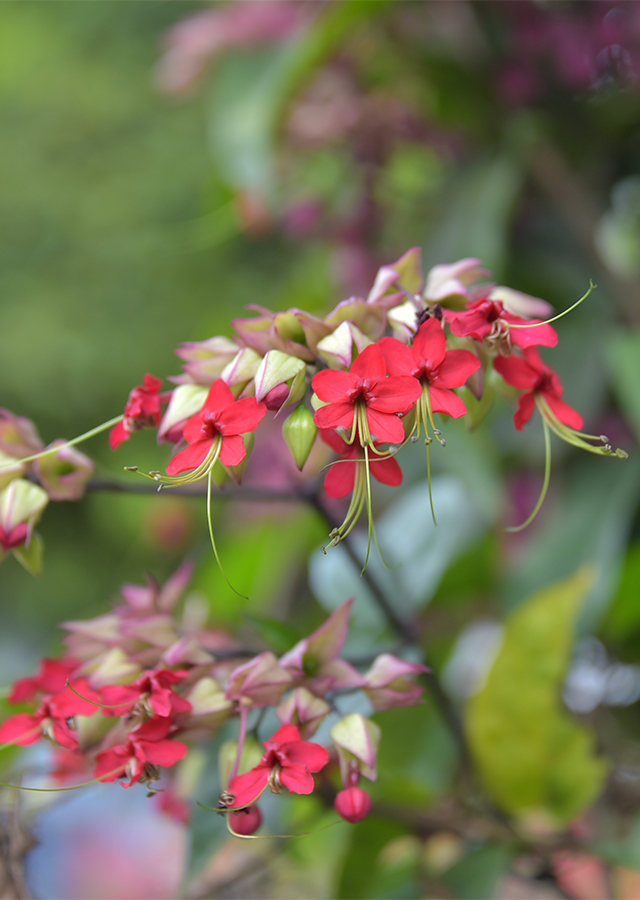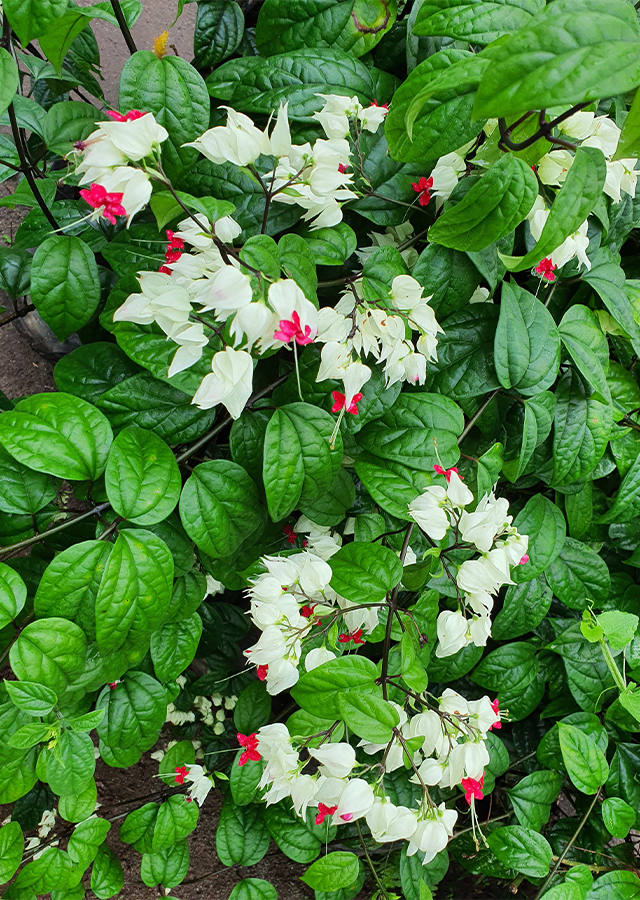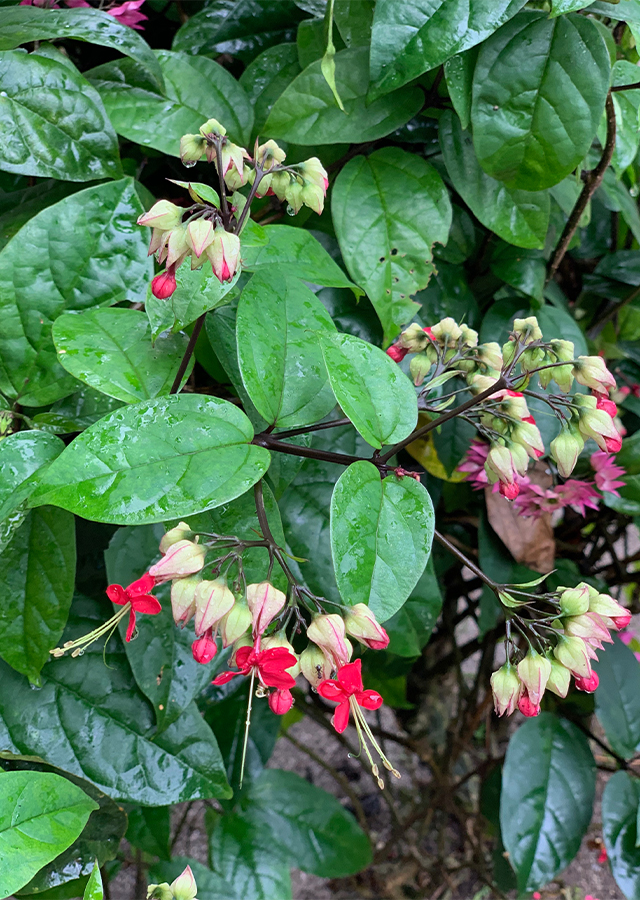Traditional Herbs from Clerodendrum thomsoniae
pee_stone_dan_pelancar_air_seni
- Wash thoroughly 15 g of fresh betel leaves. Boil in 3 glasses of water for 15 minutes. Cool, strain and divide into two.
- Drink 2 times a day, morning and evening."], "bruises_and_wounds
- Prepare enough leaves and flowers of Miss Eating Betel.
- Blend the two ingredients until they become pulverized.
- Apply it to the wound and bruises.
What is Clerodendrum thomsoniae Looks like??



Parts of Clerodendrum thomsoniae that could be used
Clerodendrum thomsoniae Distribution
Miss eating betel originates from tropical West Africa, stretching from West Cameroon to Senegal, but is now spread throughout the world. This plant is popularly planted as an ornamental plant in the yard or in city parks and has long been used as a traditional medicine.
Agroecology of Clerodendrum thomsoniae
Generally found in yards or parks, grows well up to a height of 1,000 m above sea level. Likes places with sufficient sunlight, moist soil, and well-drained. Tolerant of various types of clay, loam, sandy soil at pH ranging from acidic, neutral, to alkaline.
Morphology of Clerodendrum thomsoniae
- Woody stem, young stem rectangular, very short hairy.
- Single leaf, stem 1-3 cm, elongated egg-shaped, paper-like texture, sharp tip, flat edge, shape like betel leaf but darker in color, smooth hair .
- Bundles of compound flowers, emerging from the tips of twigs or leaf axils. White petals, hairy, 1-3 cm long, red crown, approximately 2 cm long.
- Fruits are round, green, filled. 2-4 seeds.
Cultivation of Clerodendrum thomsoniae
- Propagate generatively (seeds) and vegetatively (cuttings).
- Pruning to stimulate growth. Cut off wilted parts.
Clerodendrum thomsoniae, more details :
Chemical Content of Clerodendrum thomsoniae
Alkaloids, flavonoids, steroids, terpenoids, phenolics, triterpenes, diterpenes, saponins, anthraquinones.
Benefits of Clerodendrum thomsoniae
Medicine for syphilis, typhoid, cancer, high blood pressure, jaundice, urinary stones and urination, inflammation of the eardrum (tympanitis) in children, reduces fever, eliminates poisons (toxins), treats bruises, wounds and rashes.
Simplisia of Clerodendrum thomsoniae
Information not yet available.
Another Facts for Clerodendrum thomsoniae :
Synonym of Clerodendrum thomsoniae
Clerodendrum balfourii� (B.D.Jacks. ex Dombrain) Dombrain, Clerodendrum thomsoniae var. balfourii B.D.Jacks. ex Dombrain, �
Habitus of Clerodendrum thomsoniae
Bush. Annual climbing shrub, reaching 2-7 m in length
Habitat of Clerodendrum thomsoniae



No comments:
Post a Comment